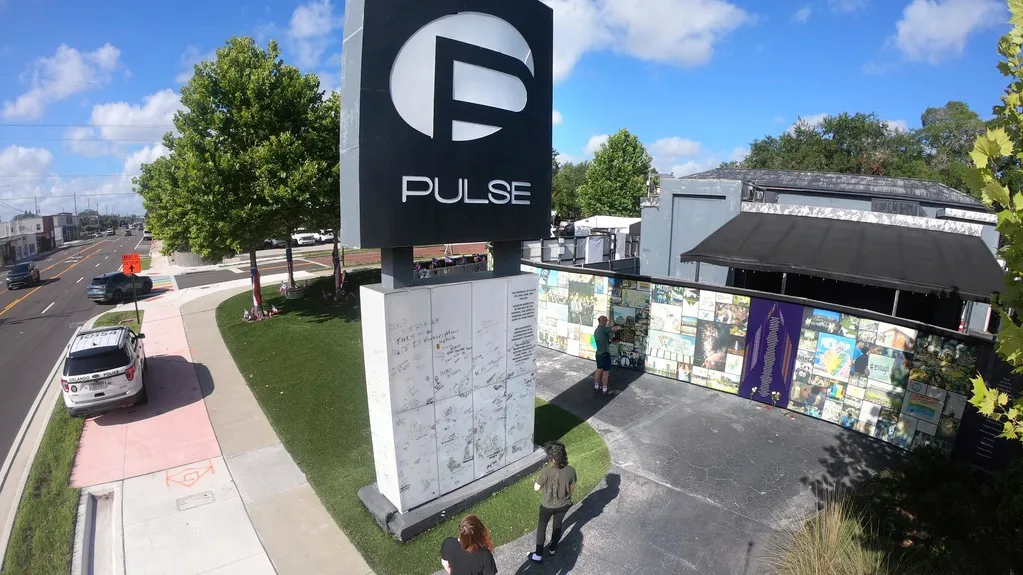November 7, 2012
54% of Maine Voters Approve Marriage Equality
Jason St. Amand READ TIME: 4 MIN.
Marriage Equality activists and supporters in Maine rejoiced on early Wednesday morning when 54 percent of the state's voters approved same-sex marriage, the Portland (Maine) Press Herald reports.
"Supporters from Portland to Presque Isle thought that truth and love are more powerful than fear and deception," Matt McTighe, campaign manager of Mainers United for Marriage, said after it was announced that Maine made history as being the first country to legalize gay marriage by popular vote.
Fifty-four percent of the 49 precincts in the Pine Tree State came out to support same-sex marriage. Those eagerly waiting for the results found out the good news around 1:30 a.m. on Wednesday. Several same-sex marriage supporters celebrated the major win at the Holiday Inn By the Bay.
The vote represents a dramatic reversal in Down Easterners' attitudes.
In 2009 gay marriage supporters were defeated when a law that would have recognized marriage equality was overturned by Maine's voters in a 53 percent to 47 percent vote.
The newspaper points out that the Secretary of State's office has 20 days to certify the approval of gay marriage. Gov. Paul LePage has 10 days. Then supporters have to wait out a constitutionally mandated 30-day waiting period for the law to go into effect. In effect, this means same-sex couples could be able to tie the knot as early as January.
"We'll be able to stand before friends and family and make that lifetime commitment we've dreamed about," McTighe said. He added that the day when same-sex couples can publically and legally commit to each other is just around the corner.
What makes Maine different is that LGBT activists were able to get around the State Legislature and the courts and put the issue on the Nov. 6 ballot, which allowed voters to take matters into their own hands.
Of course, not everybody was celebrating early Wednesday morning. Those who opposed the pro-gay marriage measure found themselves on the wrong side of history when they learned the results of the measure while waiting in another hotel conference room.
"When we started this campaign, we said marriage was in trouble in our country." Protect Marriage Maine's leader Carroll Conley said. "The problems that have weakened this critical institution started long before this present attempt to redefine it. We made the case for traditional marriage and we're terribly disappointed that we were not able to convince enough voters to hold on to the value of traditional marriage for society and we genuinely fear for the consequences we've raised during the campaign."
Several LGBT organizations around the country applauded and thanked Maine voters.
"This is a landmark election for marriage equality and we will forever look back at this year as a critical turning point in the movement for full citizenship for LGBT people," Chad Griffin, president of the Human Rights Campaign, said. "Voters in Maine came to the common-sense conclusion that all people deserve the ability to make loving, lifelong commitments through marriage."
The National Gay and Lesbian Task Force's executive director Rea Carey said that passing the measures in all four states was a step in the right direction.
Maine is one of four states that voted on marriage equality. Maryland, Washington and Minnesota also passed measures that legalized gay marriage. Six other states and the District of Columbia have awarded same-sex couples the right to get married. Massachusetts was the first to do so in 2004.
The New New England
The vote makes New England the most advanced region in the nation for gay rights. All but one one of the six states now has legalized same-sex marriage, and Rhode Island is expected to fall in line soon.
This makes for an especially dramatic turnaround considering the region's history. We look nostalgically at the Pilgrims, but in fact the were fanatical Puritans who left England because of their exceptional rigidity in all matters moral, attitudes which culminated in the insanity of the Salem witch trials.
The region was so much the bedrock of social conservatism that "banned in Boston" became a catchphrase for any film, play or book that the state's moral arbiters considered too risky for public viewing. "Boston marriage" was the catchphrase for two "spinster" who lived together in matrimonial bliss but this was among the Boston brahmins. (The upper classes have always had their own secret standards about such things.)
It should be noted that Rhode Island and Connecticut, however, were both founded as places of refuge from religious persecution. Both states advanced (at least in theory) rights of Native Americans. The region became the center of the abolition movement to rid the nation of slavery. And Rhode Island offered the safest refuge for Jews, with Newport's synagogue the oldest in continuous use.
The change overall began with the sea change in the elite universities for which New England is world famous, and the advent of the liberal Kennedy dynasty.



